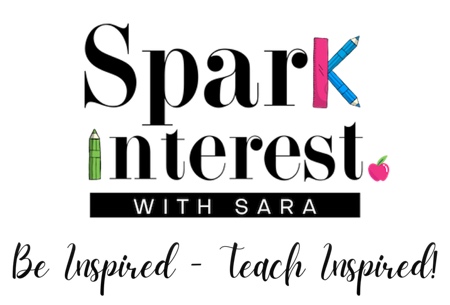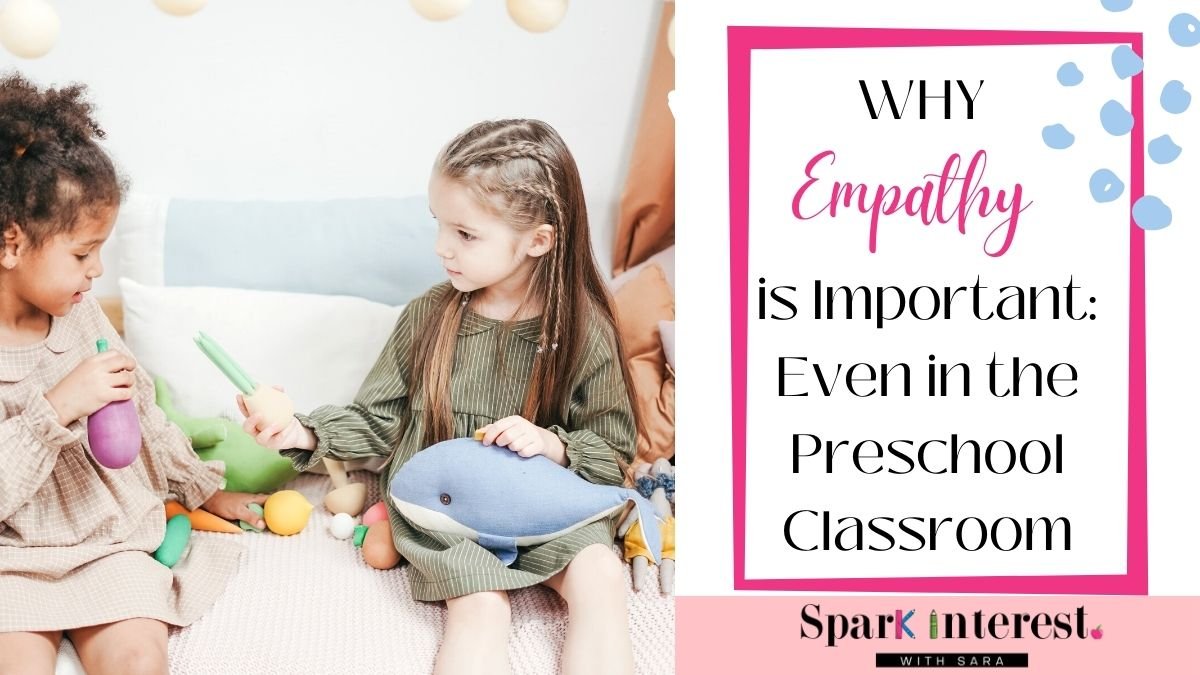
Why Empathy is Important: Even in the Preschool Classroom
Last week in preschool, one of my 4-year-olds came up to me crying because she had done a drawing specially for another child and that child did not want it! When I asked the receiver of the picture why she didn’t accept it she said she wasn’t her friend and so she didn’t want it! Her lack of empathy and understanding of the other child’s point of view made me reflect on why empathy is important to teach in the preschool classroom.
Before I jump into what I’ve been thinking about in regards to empathy, I’ve included a Kindness FREEBIE here for you. Just click on the image to receive your FREE Kindness Scenario Cards ????????
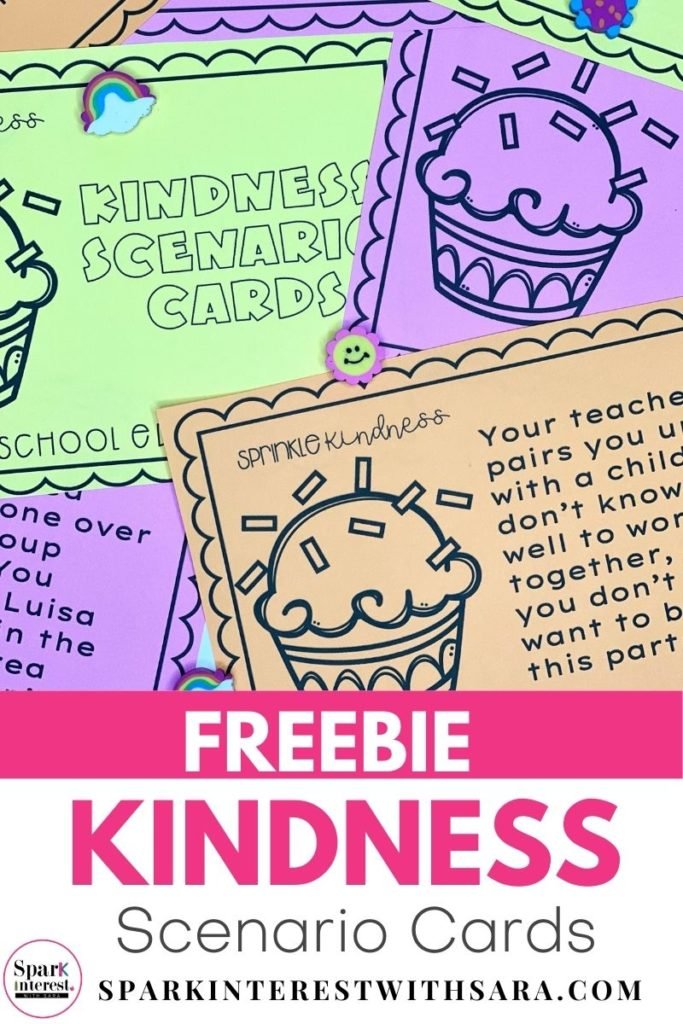
Empathy is one of those topics that is so important and we as teachers need to make sure we teach and develop it in every one of our students. Even in the preschool classroom, there are so many opportunities to help children develop empathy skills and allow them to practice them.
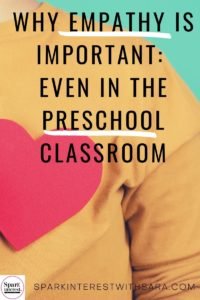
What is empathy for kids?
Empathy, by definition, is the ability to understand and share the feelings of others. It means that someone can relate to someone else’s hardships, happiness, and other emotions. Psychologists Daniel Goleman and Paul Ekman have found that empathy can be broken into three different categories: Cognitive, Emotional, and Compassionate.
Cognitive empathy is just simply knowing how someone is feeling and how they are thinking. Emotional empathy is when you physically feel along with a person like their emotions are running through you as well. Compassionate empathy is where you understand a person’s experiences and feel for them and you are moved to help them!
Just looking at those words and definitions may make you wonder how it is even possible for young learners in preschool to even wrap their minds around the idea. However, it is possible and preschool is the age where we really should learn and develop empathy in our students.
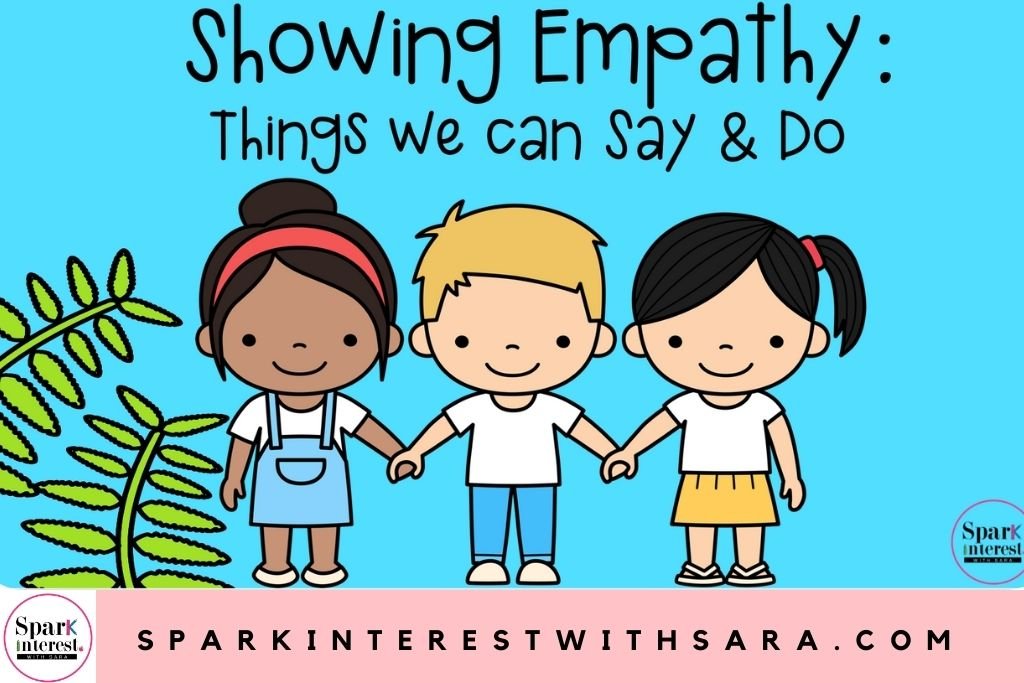
When does empathy develop?
Studies have shown that empathy develops around the age of two. Toddlers can understand people may feel different from them and may even try to soothe them if they feel like they need to. By six or seven, children really have the idea of cognitive empathy down and are working on the other categories. Although we often say they develop natural empathy, it is actually a learned concept. Although empathy is an instinct we are born with, children still need to be taught and have opportunities to practice empathy to truly understand the concept and how to apply it in their daily life.
Why empathy matters for young children?
There are so many reasons empathy matters for young children. Here are seven reasons why empathy is important for preschoolers to learn and develop.
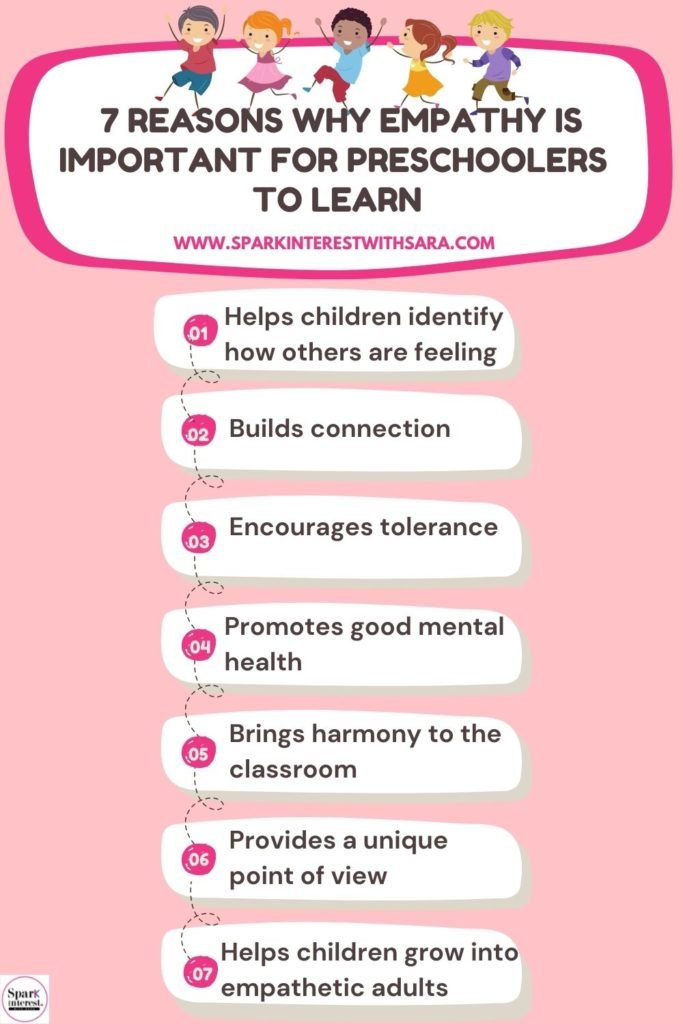
#1 Helps children identify how others are feeling
Preschool teachers spend about 90% of their day dealing with feelings and emotions. Whether it is helping students regulate their emotions, teaching students about emotions, or helping students deal with others’ emotions. You see A LOT of emotions throughout the day.
When you help your student learn and develop empathy skills, you are helping them identify how other people are feeling and why. This will allow them to connect with friends and peers on a deeper level and will set them up on the right path toward understanding the world around them as they get older.
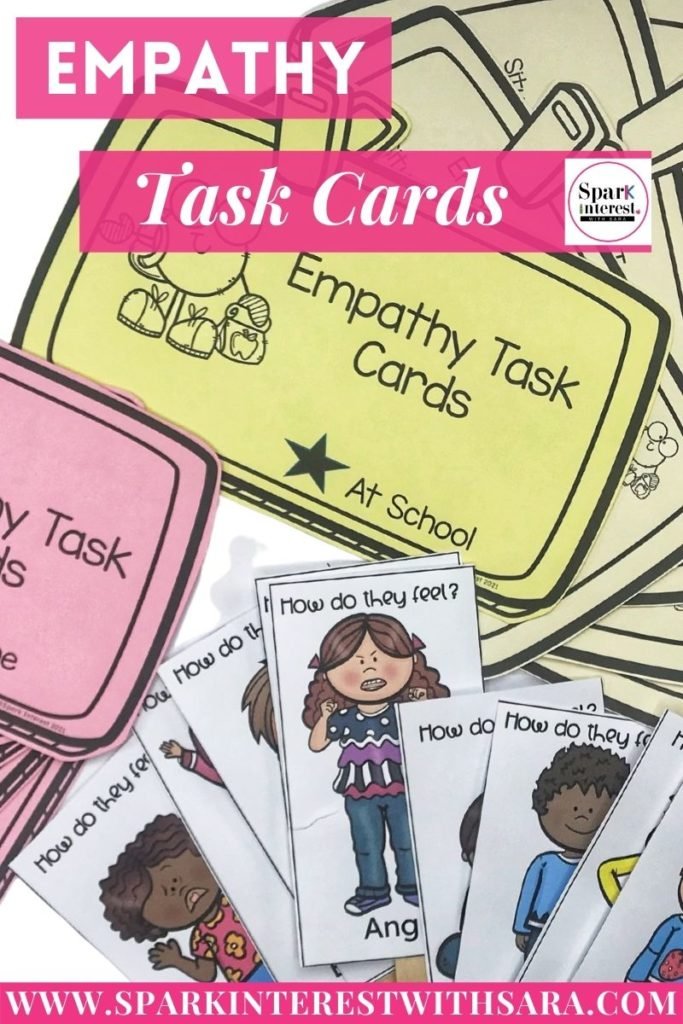
#2 Builds a connection
Empathy allows for stronger connections between students, and it helps build stronger connections between students and teachers. Since students can understand another’s feelings and problems or hardships, they can connect with them a little deeper. They may relate to them on some level, or they may understand that they need a little more help or understanding.
It also helps build a bond between teachers and students. Students understand teachers are human and they have emotions just like them. They also understand the stresses adults and teachers are under daily. Teachers can build a stronger relationship by understanding the student’s struggles as well and helping them work through them if they can in the classroom.
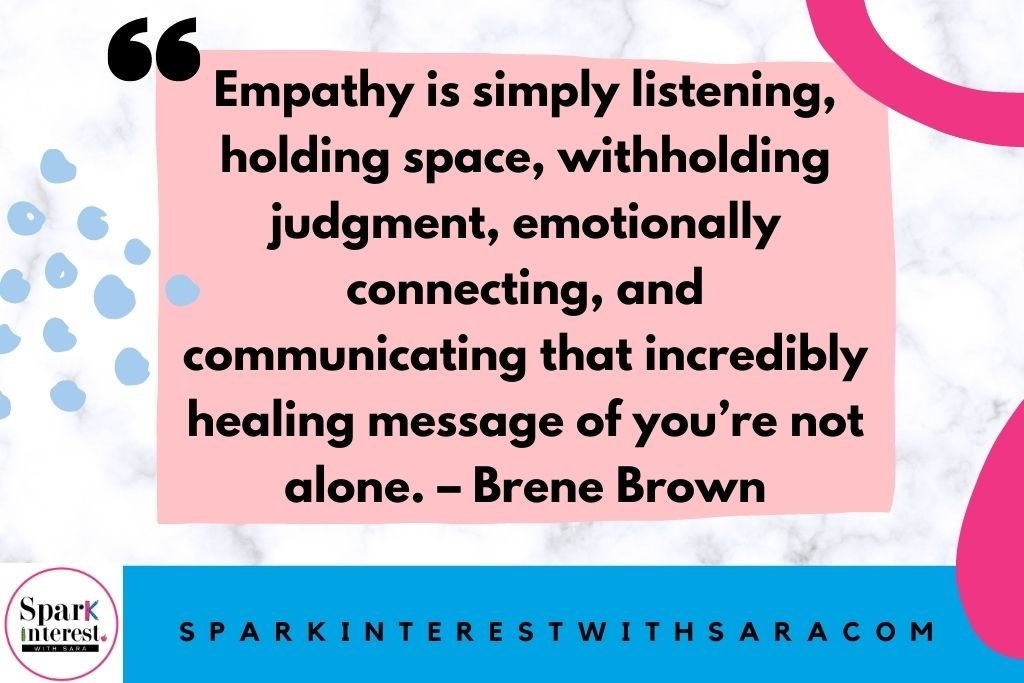
#3 Encourages tolerance
It is important to develop empathy skills because empathy encourages children to have tolerance towards others. This means students understand there are people who differ from them and that is ok! This will certainly help when it comes to developing friendship skills. Showing students there are people who have different family dynamics, different financial dynamics or have disabilities, etc., and teaching them they should be understanding and “walk a mile in their shoes” before judging or feeling a certain way.
#4 Promotes good mental health
Having students practice empathy towards others helps improve their ability to manage and respond to different emotional experiences, whether their own or someone else’s. This means children who have developed empathy skills may be more able to handle stressful or emotionally challenging situations. This means it will help them manage their own stress and will allow them to relate to others who may have felt stressed out as well (and hopefully help them too!).
#5 Brings harmony to the classroom
A classroom that runs in harmony is every teacher’s dream, and teaching and practicing empathy with your children can really help this become a reality. If students can empathize with other’s you are going to see them work through difficult situations, be able to share easier, look for solutions without teacher involvement and so much more. They will become each other’s support systems and cheering squad, making the classroom run smoothly and happily.
#6 Provides a unique point of view
Empathy helps children regulate their own emotions by being able to see others’ points of view and adapt to situations & people. This is important in all aspects of school life and it is a great tool not only for social, emotional learning but also for learning in general. To read a book and empathize with the characters’ situations, or be able to look at the different points of view a story may have is a great skill and if we develop this skill early on, it will truly benefit children in the long run.
#7 Helps children grow into empathetic adults
This reason had to come last. If we are teaching our young learners empathy, then we are teaching an entire generation how to be empathetic adults. We are showing them how to care for others, how to understand others, and how to treat others.
As you can see, empathy is important for so many reasons, and developing empathy in our preschoolers will really result in some amazing benefits. So the next time you think a preschooler is just too young to understand such a complex concept, think again!
If you are looking to develop more kindness and empathy with your students, check out my posts below:
13 Brilliant Books to Help Teach and Develop Empathy in Your Classroom
5 Ways to Easily Fit Friendship Activities into Your Day
3 Main Areas to Focus on when Teaching Friendship Skills to Preschoolers
7 Fun and Engaging Activities about Friendship for Preschool Classrooms
If you loved reading this blog post about why empathy is important, please subscribe to receive more tips.
One last thing before you go, Don’t forget to grab my FREE Kindness Scenario Cards!
Let's Connect:

Sara
